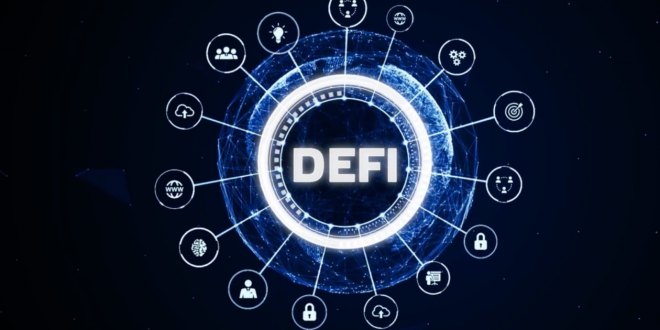As technology continues to disrupt traditional industries, the financial sector is experiencing a revolutionary transformation through Decentralized Finance (DeFi). DeFi leverages blockchain technology to provide an open, permissionless, and transparent financial ecosystem that operates without intermediaries like banks. This article explores the potential of DeFi and how it is reshaping the future of finance and investment.
- Understanding Decentralized Finance (DeFi): DeFi refers to a range of financial services and applications built on decentralized blockchain networks. These platforms offer a wide array of services, including lending, borrowing, trading, yield farming, and decentralized exchanges (DEXs), all governed by smart contracts.
- Open and Inclusive Access: One of the key advantages of DeFi is its inclusivity. Anyone with an internet connection can access DeFi services without needing approval from traditional financial institutions, making it particularly beneficial for unbanked populations.
- Eliminating Middlemen: DeFi platforms eliminate the need for intermediaries like banks or brokerage firms. This disintermediation reduces transaction costs and enhances the speed of financial transactions.
- Enhanced Security and Transparency: Blockchain technology, the backbone of DeFi, ensures robust security and immutability of data. Transactions are transparent and traceable on the blockchain, reducing the risk of fraud and manipulation.
- Yield Farming and Staking: DeFi introduced innovative concepts like yield farming and staking, where users can earn rewards by lending or locking their cryptocurrencies as collateral. These incentives attract liquidity to DeFi platforms, driving their growth.
- Smart Contracts and Automation: Smart contracts automate the execution of financial agreements without the need for intermediaries. This automation enhances efficiency and reduces the chances of human error.
- Risks and Challenges: While DeFi offers exciting opportunities, it also comes with risks. Smart contract vulnerabilities, hacking incidents, and market volatility are some of the challenges that investors and users need to consider.
- Regulation and Compliance: As DeFi gains popularity, regulators are grappling with how to approach this decentralized and borderless financial ecosystem. Striking a balance between fostering innovation and protecting consumers remains a challenge.
- Mainstream Adoption and Integration: Despite challenges, DeFi is gaining traction. Traditional financial institutions are starting to explore ways to integrate blockchain and DeFi applications into their existing services.
- The Path Ahead: The future of finance seems to be closely tied to the growth of DeFi. As technology evolves, DeFi is expected to play an increasingly pivotal role in democratizing access to financial services, fostering financial inclusion, and transforming the global economy.
Decentralized Finance (DeFi) represents a paradigm shift in the financial landscape, enabling greater financial autonomy and accessibility for individuals worldwide. As DeFi projects mature and regulatory frameworks evolve, the potential for innovation and growth in the DeFi space is immense. However, investors and users should exercise caution, conduct due diligence, and be aware of the risks involved in this fast-evolving and dynamic sector. With responsible use and continued innovation, DeFi has the potential to revolutionize finance and shape the future of investments.
 Blogmado Empower Your Wealth: Expert Insights for Success
Blogmado Empower Your Wealth: Expert Insights for Success



